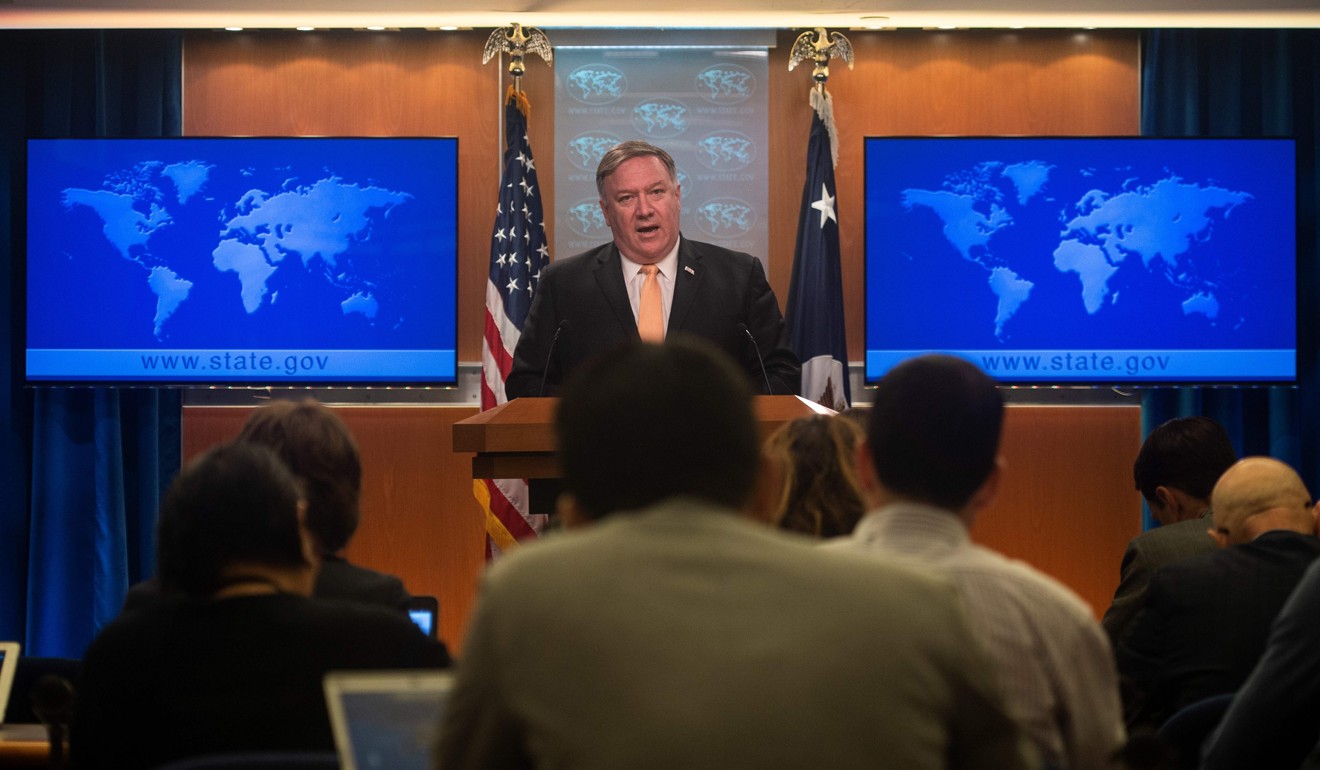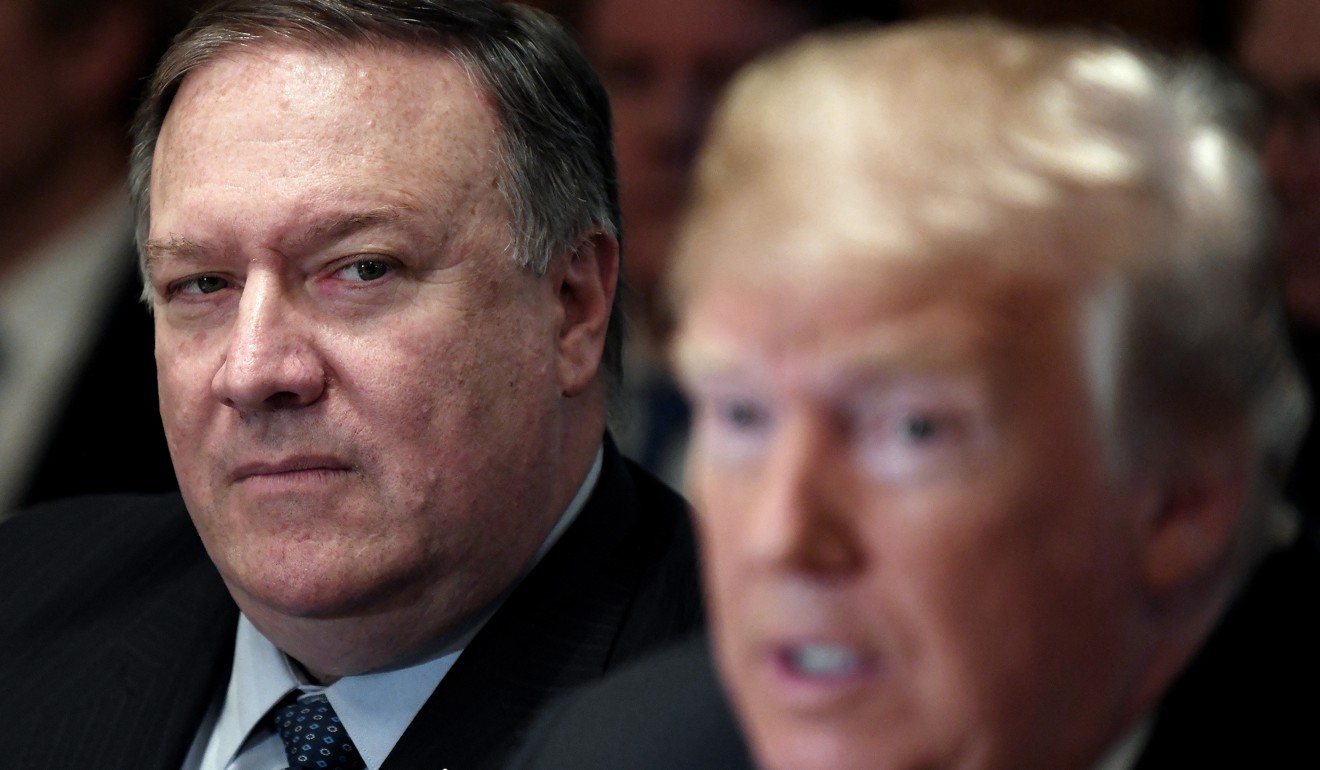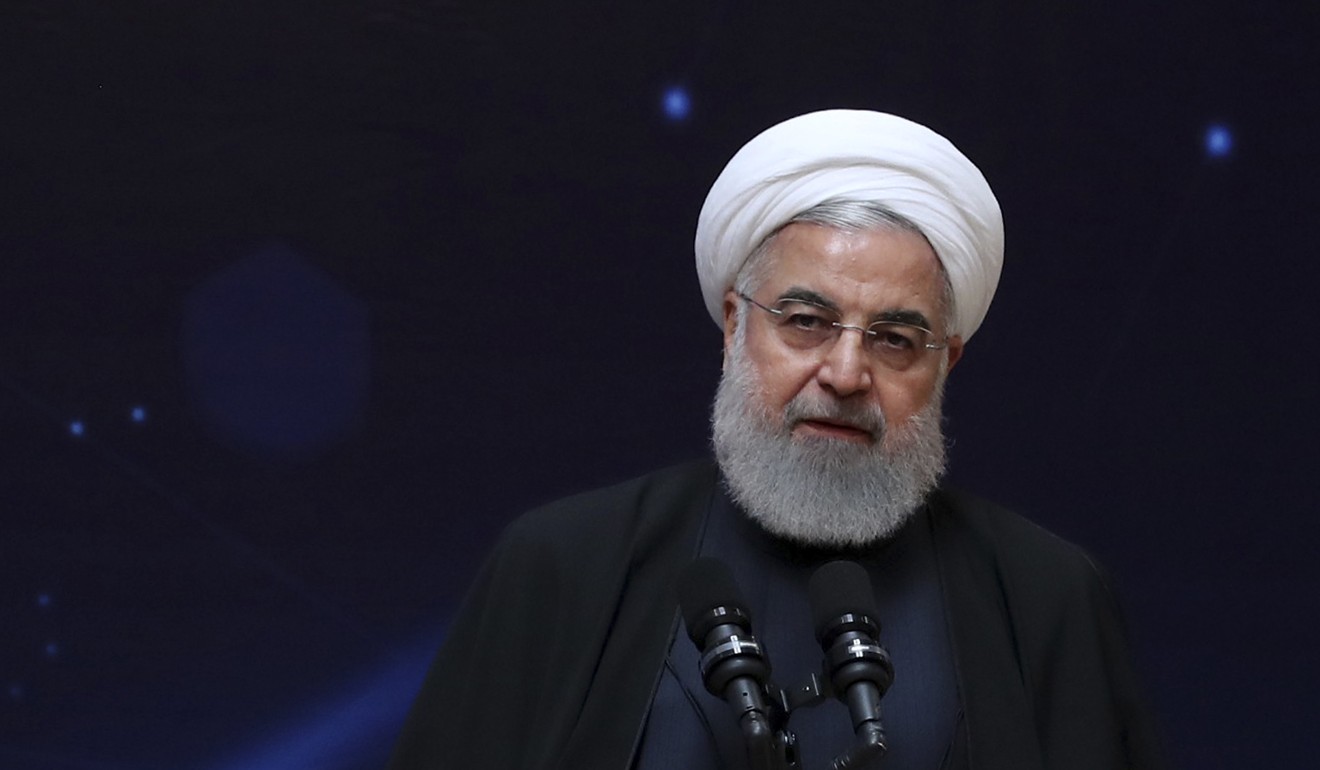
‘We’re going to zero’: US to end Iran oil waivers on May 2, opening up China to US sanctions
- The US granted eight oil sanctions waivers when it reimposed sanctions on Iran to give countries more time to find alternate energy sources
- US now wants to further ramp up pressure on Iran by strangling the revenue it gets from oil exports

US Secretary of State Mike Pompeo said on Monday the United States is not extending any waivers exempting importers of Iranian oil from US sanctions and there will be no grace period for those economies to comply.
“We’re going to zero. We’re going to zero across the board,” Pompeo told reporters after the White House announcement, referring to the amount of oil Washington wants Iran to export. “There are no waivers that extend beyond that period, full stop.”

The move, which begins when waivers expire on May 2, could roil energy markets and risks upsetting major importers such as India and China.
The current set of waivers have also been issued to Japan, South Korea, Italy, Greece, Turkey and Taiwan.
Pompeo said other suppliers, including Saudi Arabia and the United Arab Emirates, have agreed to increase supply to offset the loss of Iranian crude on the market.
“The goal remains simply: to deprive the outlaw regime of the funds that it has used to destabilise the Middle East for decades and incentivise Iran to behave like a normal country,” Pompeo said.
The decision not to renew the waivers is a victory for hawkish national security adviser John Bolton and his allies who argued that US promises to get tough on Iran were meaningless with waivers still in place.
Pompeo and his team had been more cautious, though they had also argued the market was well-enough supplied to ramp up the pressure on Iran.
“The maximum pressure campaign could not be maximalist until the administration cut off Iran’s oil exports,” said Mark Dubowitz, the chief executive officer of the Foundation for Defence of Democracies and a supporter of additional sanctions on Iran.
“With this decision, Iran’s economy will be under severe pressure as its hard currency earnings dry up and its foreign exchange reserves plummet.”

One administration source said on Sunday that President Donald Trump briefed Saudi Arabia’s Crown Prince Mohammed bin Salman and UAE’s Crown Prince Mohammed bin Zayed on the decision in phone calls last week.
Trump withdrew from the 2015 nuclear deal between Iran and world powers almost a year ago and revived a range of sanctions against Iran and any countries doing business with the Islamic Republic. But he and his top advisers have been wary of roiling energy markets – and spurring an increase in prices at the pump in the US.
For that reason, they allowed waivers for Iran’s biggest buyers of crude, including China, India and Turkey.
Since November, three of the eight – Italy, Greece and Taiwan – have stopped importing oil from Iran.
The other five have lobbied for their waivers to be extended.
Nato ally Turkey has made perhaps the most public case for an extension, with senior officials telling their US counterparts that Iranian oil is critical to meeting their country’s energy needs.
They have also made the case that as a neighbour of Iran, Turkey cannot be expected to completely close its economy to Iranian goods.
One of the people said some of the countries that previously received waivers would be given a little more time to wind down purchases. The person described that not as a waiver but more as a brief grace period.

Bolton and officials in the US Energy Department argue that it’s time for the administration to make good on its desire to push Iran’s oil exports to zero.
Pompeo’s team, led by Iran special representative Brian Hook, cautioned that a sudden removal of Iranian crude from the market – about 1.1 million barrels a day – could fuel volatility and lead to a price spike.
“We certainly aren’t looking to grant any exceptions or waivers,” Hook told Bloomberg earlier this month.
Oil markets are better supplied this year than last, and that “puts us in a better position to accelerate the path to zero”, he said.
The risk now is the decision could spike crude prices just as Trump begins to gear up to campaign for a second term.
His administration had been wary of doing anything that could push crude prices above US$70 a barrel, but as of Friday, the price of Brent was at US$72.
The administration had also faced growing pressure from Iran hawks in the Senate, including Ted Cruz of Texas and Tom Cotton of Arkansas, to cut waivers to zero.
Some senators had threatened to hold up administration nominees if the waivers stayed in place and argued that continuing to grant exemptions would be a direct contradiction of the Trump administration’s decision to leave the Iran deal.
Additional reporting by Associated Press, Reuters